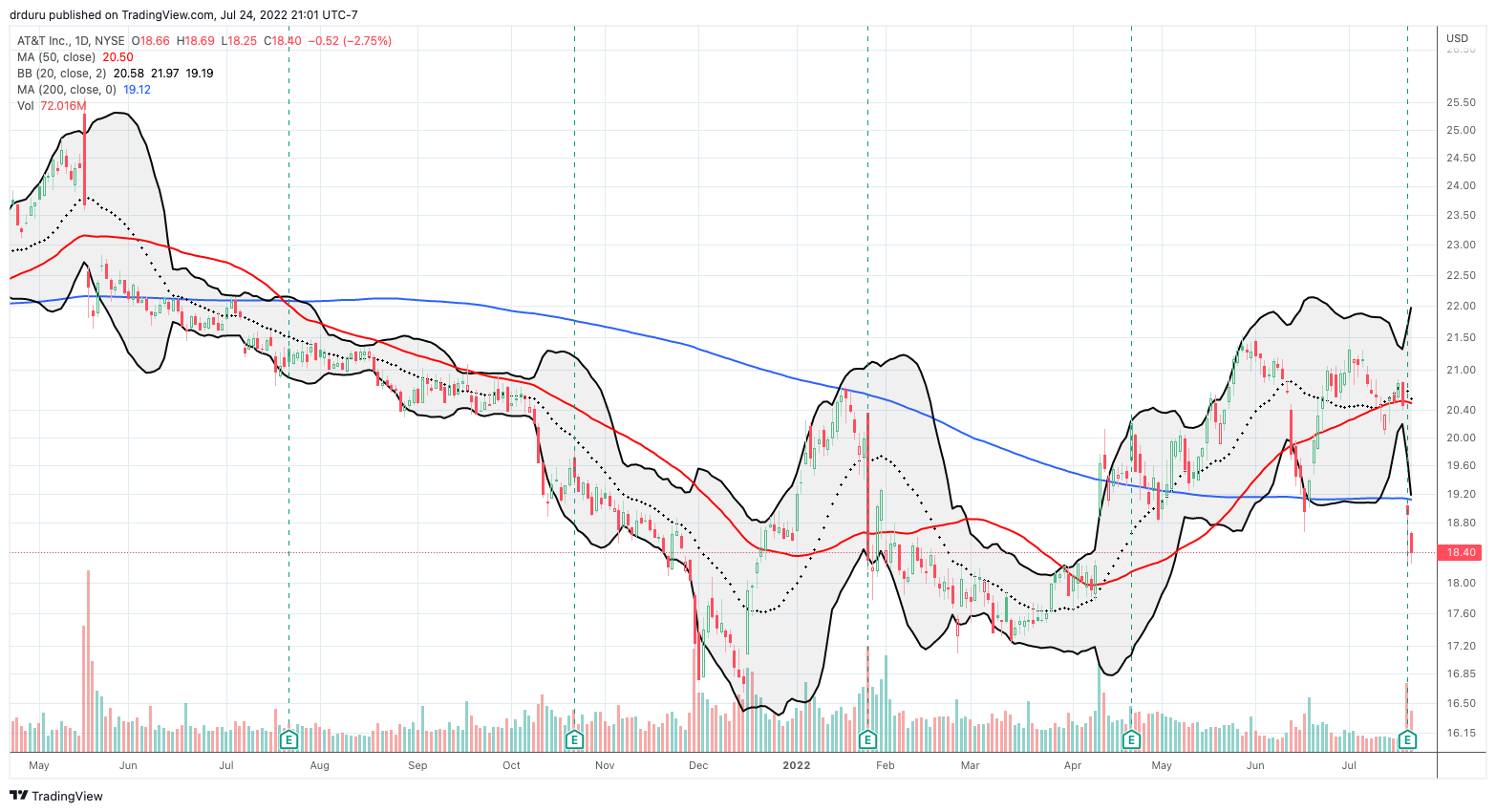“…on the consumer side of our business, we’re seeing an increase in bad debt to slightly higher than pre-pandemic levels as well as extended cash collection cycles.”
AT&T, Inc. (T) CEO John Stankey on Q2 2022 Results – Earnings Call Transcript (Seeking Alpha)
This observation caught some attention because it sounds like the early warning signs of the economic stress of a recession. Significantly, telecommunications services are typically a household essential that consumers are loathe to give up. So if AT&T, Inc (T) customers are delinquent on their phone bills, they must truly be teetering on the economic edge.
Yet, CEO John Stankey immediately clarified that this increase is no cause for alarm: “it’s important to note that historical patterns in previous economic cycles suggest customers have managed their accounts similar to what we’re experiencing today…We view this cycle no differently and still expect customers will pay their bills, albeit a little less timely.” In other words, Stankey thinks his consumers just need a little more space to manage bills. Soaring inflation is burdening certain consumers and making bills feel heavier than ever. Moreover, net-net, the impact to AT&T appears to be a wash: “While bad debt is now slightly higher than pre-pandemic levels, it is being offset by better-than-expected customer revenue growth.” Moreover, CFO Pascal Desroches later specifically clarified in the Q&A that “we’re not, in any way, harmed by this.” Thus, a closer review of the conference call reveals no real economic alarm bells.
Interestingly, AT&T’s mobility business improved partially thanks to customers upgrading to higher priced unlimited plans. The company also took “price actions” in June. Hardly a move by a company afraid of losing customers to economic stress.
Management’s Real Worry
While Stankey is not worrying about his consumers, he does worry over the lack of visibility in the current economic environment. The swirl of monetary policy and inflation clouds the outlook.
“….what happens in the overall economic pattern is a bit uncertain. And without seeing how the Fed reacts, how fast we see the curve starting to abate on the inflation side, trying to make that pick right now just feels like it’s a bit of an overreach. And so I think we’re reserving the right to get a little bit more visibility on ’23 to declare.”
Companies across the spectrum likely share these concerns.
Forgetful, Not Delinquent?
Could forgetfulness also help explain delinquent bills? Earlier this year, WalletHub reported that “many people now cannot keep up with the payments on their debt…over 16% of respondents said they believe they will miss at least one credit card due date in 2022.” Surprisingly, forgetfulness is cited as the most common reason for missing a payment. Forty-five percent of those who missed a credit card payment blamed forgetfulness. The Wall Street Journal’s “Your Money Briefing” podcast ran with this headline and provided additional flavor to this story in People Are Missing Monthly Payments.
So are some of AT&T’s delinquent customers just more forgetful than usual because of the stresses of today’s economy? One can only guess. Regardless, this report about forgetting bills provides an interesting twist and nuance to alarm bells over delinquencies.
Be careful out there!
Full disclosure: no positions


